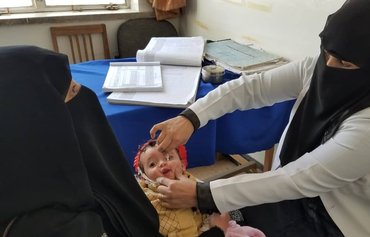The conflict and civil strife that has erupted since the Arab Spring began in 2010 has shortened lifespans and damaged health, according to a study published Thursday (August 25th) in The Lancet Global Health journal, AFP reported.
Average life expectancy in Syria has been cut by six years, with Yemen, Egypt and Tunisia all losing about three months in life expectancy between 2010 and 2013, researchers reported.
Deteriorating conditions threaten health gains made over the previous two decades, they said.
"Recent conflicts have shattered the basic infrastructure in a number of countries," said lead author Ali Mokdad, a professor at the University of Washington's Institute for Health Metrics and Evaluation. "As a result, millions of people are facing dire water shortages and poor sanitation that will lead to disease outbreaks."
Infant mortality also is rising in some countries, the study found, with the situation most dire in Syria, where average annual drops in infant deaths of 6% from 2000 to 2010 gave way to an increase of more than 9% per year between 2010 and 2013.
"The Arab uprising has evolved into complex wars," Mokdad said. "Along with population growth and ageing, these ongoing conflicts have dramatically increased the burden of chronic diseases and injuries."
Many doctors and nurses have fled to safe havens, he said, adding to the health woes.







